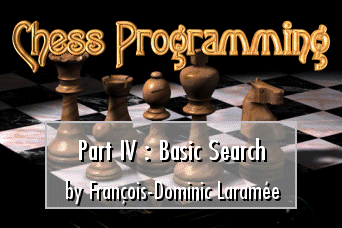11/10 - 11/12 @ Montréal, Canada
12/5 - 12/7 @ Shanghai, China
12/24 - 12/27
2/28 - 3/4 @ San Francisco, CA
More events...
2406 articles in the reference section.
Help us fight cancer!
Join SETI Team GDNet!

|
Alphabeta: Making Minimax Feasible (a little)Suppose that you have already searched Max' move B in the mini-game above. Therefore, you know that, at best, Max' score for the entire game will be 5. Now, suppose that you begin searching move A, and that you start with the path A-D. This path results in a score of -2. For Max, this is terrible: if he plays A, he is sure to finish with, at best, -2, because Min plays perfectly; if A-C results in a score higher than A-D's, Min will play A-D, and if A-C should be even worse (say, -20), Min would take that path instead. Therefore, there is no need to look at A-C, or at any other path resulting from move A: Max must play B, because the search has already proven that A will end up being a worse choice no matter what happens. This is the basic idea being the alphabeta algorithm: once you have a good move, you can quickly eliminate alternatives that lead to disaster. And there are a lot of those! When combined with the transposition table we discussed earlier in the series, and which saves us from examining positions twice if they can be reached by different combinations of moves, alphabeta turns on the Warp drive: in the best case, it will only need to examine roughly twice the square root of the number of nodes searched by pure Minimax, which is about 2,500 instead of 1.5 million in the example above.
|
|
|
|
|